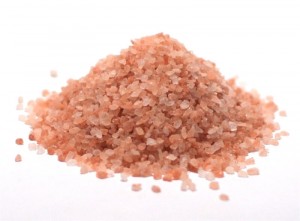According to the Centers for Disease Control and Prevention in Atlanta, in May of this year several states began reporting an increase in the number of cases of a common bacterial illness known as Salmonella Enteritis. The numbers have continued to increase throughout June, July and August. The cause has been traced back to salmonella-contamined eggs coming primarily from one company – Iowa-based Wright County Egg – which is owned by Austin “Jack” DeCoster who has a long history of violations in the food industry. A second Iowa company with a similar style of operating has also been identified.
The companies began a voluntary recall which has now become the largest recall of eggs in U.S. history. These eggs are distributed nationwide under 24 different brands and are packed in varying sizes of cartons, according to the Food and Drug Administration. The F.D.A. said the plant number is preceded by the letter P, followed by the date code, and showed an example on its Web site. The Washington Post has a list of brands, plant numbers and dates to help the public determine if they have purchased any of the possibly-contaminated eggs.
The salmonella bacteria is not one that usually resides in our digestive system. Salmonella infection can cause diarrhea, vomiting and stomach pains. Infants, the elderly, and those who are immune-comprised are at special risk for complications. In the case of salmonella-contaminated eggs, the bacteria is inside the shell and has the potential to cause illness if consumed. Adequate cooking of the egg will kill the bacteria, so avoiding raw and undercooked eggs coming from this type of egg “farm” is important.
Salmonella-tainted eggs were not a common occurrence until the advent of industrial style egg farming. The egg industry has changed greatly in the U.S. (and increasingly in other countries) in recent decades. The old standard of small farms where chickens were free to spend much of their time outdoors in a natural setting and allowed to forage for their natural diet – known as Free Range or Cage Free poultry farming – has given way to industrial style farming with chickens kept confined in massive, crowded buildings. Sanitary conditions are not very good under these situations and infections in the chickens is more common.
Over the years, more and more of our eggs have come from fewer and fewer facilities. According to Food & Water Watch, half of U.S. egg production is now concentrated in just five states: Iowa, Ohio, Indiana, Pennsylvania, and California, and ninety-five percent of all eggs come from facilities with 75,000 birds or more.
Purchasing eggs from small, local farmers who use the Free Range or Cage Free style of farming (which goes hand in hand with organic farming) dramatically decreases the risk of salmonella contamination as well as increases the amount of nutrients in the eggs. These chickens are out in the sunshine and fresh air, exercising and foraging for food that is part of their natural diet; they grow more slowly than industrial-style chickens, and deliver healthier, more nutrient-dense eggs.
For those who are exposed to salmonella, the healthier your own ecosystem of beneficial bacteria in your intestines, the more you will be able to fight off this foreign invader and minimize any undesirable symptoms of intestinal infection. Eating probiotic foods and/or taking a daily supplement of a quality probiotic goes a long way toward building a healthy inner ecosystem and strong immune system.




